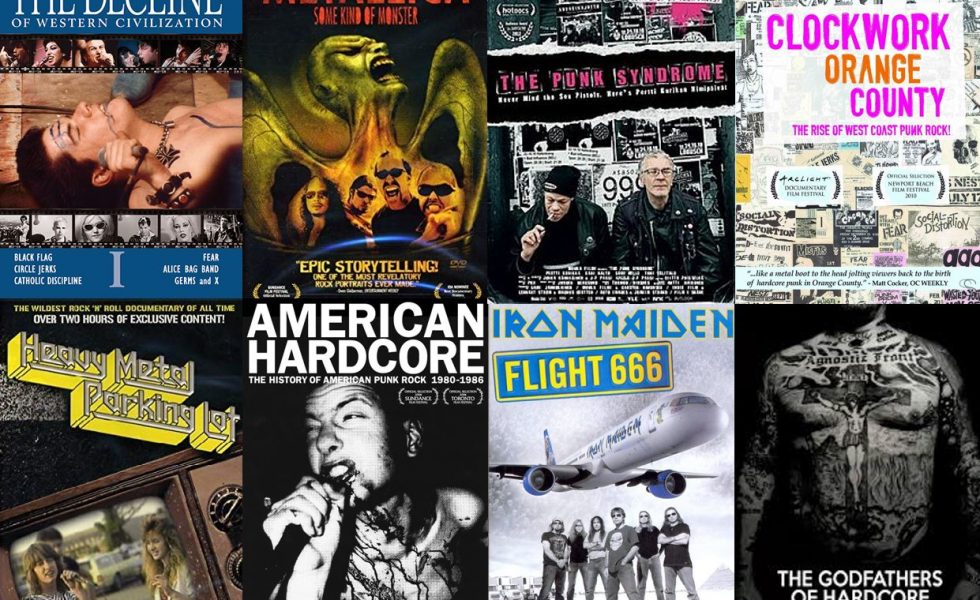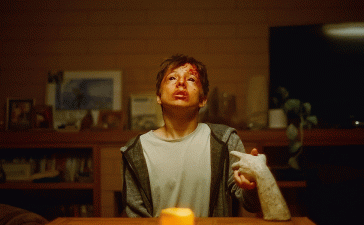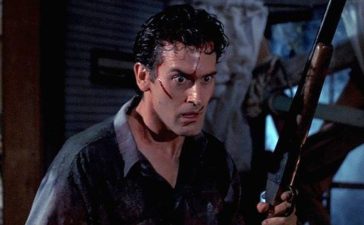Music documentaries have been around since sync sound became a thing back in the day. The aesthetic appeal is obvious – live music is a blast, after all – but with the rise of music fandom what really popped was the ability to see, to at least some mediated degree, behind the curtain. Not just the creative process, mind you – film, for all its power, has rarely been much chop at depicting the lonely, weird road to actual creation – but the big personalities, big scandals and, almost inevitably, big tragedies that underpin so much music.
Heavy music as a broad genre church hasn’t received as much cinematic attention as the poppier, more accessible sounds of the mainstream, but there’s gold to be mined if you know where to look, and as older bands achieve respected elder statesman status, some attempts to print the legend have even had awards season runs. We’re not trying to be definitive here – even on the internet word counts are A Thing – but the discerning fan could do worse than cue up some of these gems.
What’s my scene?
Sometimes it’s useful to widen the scope. To not just look at a band or even a genre, but a whole scene, and try to put it into some kind of cultural context. The gold standard here is, beyond a shadow of a doubt, Penelope Spheeris’ The Decline of Western Civilisation trilogy, a kind of generational series that looks at the LA punk scene in 1981, Sunset Strip hair metal in ’88, and gutter punks. Spheeris later directed 2001’s We Sold Our Souls for Rock ‘n’ Roll, a behind the scenes look at the Ozzfest tour, and though you get plenty of bang for your buck in terms of big names doing their thing in that one, it lacks the grit and humanity of her early doco work.
For an even more pavement-level take, Heavy Metal Parking Lot (d. John Heyn and Jeff Krulik, 1986) is literally just a bunch of people hanging outside a stadium prior to a Judas Priest/Dokken show. Desolation Centre (d. Stewart Swezey, 2019) charts a series of underground art rock shows in 1980’s California and features appearances from Sonic Youth and Einstruzende Neubauten. Until the Light Takes Us (d. Aaron Aites, Audrey Ewell, 2008) puts the spotlight on the murderous Norwegian Black Metal scene of the early ‘90s, Clockwork Orange County (d. Jonathan W.C. Mills, 2012) lionises the West Coast hardcore mecca that was the Cuckoo’s Nest live venue in Costa Mesa, American Hardcore (d. Paul Rachman, 2006) attempts to cover an entire decade of U.S. punk from ’80 – ’86, while Hype! (d. Doug Pray, 1996) attempts to peel back the media hype surrounding the rise of the Seattle sound.
The legendary and the lost
The problem with making a big star or band the subject of the film is the almost inevitable drift towards hagiography, coupled with the potential presence of litigious record companies lurking in the background of the behind-the-music stories that start to cross the line from “colourful” to “actionable”. Thus, many of the more high-profile metal bio-docs are strictly for the fans, as their points of focus are basically billionaire dinosaurs weighed down with lucrative licensing and merch deals.
So, while Iron Maiden Flight 666 (d. Scot McFadyen and Sam Dunn, 2009) and Super Duper Alice Cooper (d. Sam Dunn, Scot McFadyen, and Reginald Harkema, 2014) have their moments, don’t expect much that hasn’t already come out on the talk show circuit. Much better is Metallica: Some Kind of Monster (d. Joe Berlinger and Bruce Sinofsky, 2004), which is remarkably honest about the kind of fevered egotism that comes with ridiculous wealth and success. Further down the roster, things get more interesting: We Are Twisted Fucking Sister! (d. Andrew Horn, 2014) is admirably self-effacing.
Punk acts tend to be a little more self-aware. End of the Century: The Story of The Ramones (d. Jim Fields and Michael Gramaglia, 2003) remains timeless, while there are at least two Joe Strummer docos worth your time: Let’s Rock Again (d. Dick Rude, 2004) and The Future is Unwritten (d. Julien Temple, 2007). For The Clash as a whole, see Westway to the World (d. Don Letts, 2000), while Julien Temple set the record straight(ish) for The Sex Pistols that same year with The Filth and the Fury (2000).
For the newer disaffected, Blink-182 documented their rise – sort of – with The Urethra Chronicles (d. Rick DeVoe and Jeffery Motyll, 1999) and The Urethra Chronicles II: Harder Faster Faster Harder (d. Matthew Beauchesne, Jeffery Motyll and Marc Steinberger, 2000), which blur the line between promo item and archival resource; and their fall with Start the Machine (d, Mark Eaton, 2008) which traces the dissolution of the first incarnation of Blink-182 and the emergence of Angels & Airwaves.
Also ran, and often still running
Sometimes the most fascinating films focus on those who only managed to brush the trailing hem of greatness with their fingertips, and while plenty of punters have seen Canadian metal veterans Anvil on the festival circuit in recent years, that’s only because the loving tribute to the sheer grind of the low-level music industry: Anvil!: the Story of Anvil (d. Sacha Gervasi, 2008), put them back on the map. Meal Tickets (D. Mat de Koning, 2016) does something similar and arguably more poignant for Perth rockers The Screwtop Detonators, spending 12 years filming them only to the band to implode before success. Roger Miret and Vinnie Stigma of Agnostic Front are still going hard, of course, but Godfathers of Hardcore (d. Ian McFarland, 2018) makes the case that the years have not made it any easier, while New York Doll (d. Greg Whitely, 2005) charts the tragic life of former New York Dolls member Arthur “Killer” Kane with rare sensitivity and pathos.
Out where the buses don’t run
And then there are the true outsiders; you know ‘em when you see ‘em.
He may be an Oscar-nominated filmmaker now, but back even before the risible Hangover movies Joker director Todd Phillips made his bones with Hated: GG Allin and the Murder Junkies (1993), a repulsive, fascinating account of the eponymous self-destructive singer. In a similar vein, Dead Hands Dig Deep (d. Jai Love, 2016) brings us – somewhat reluctantly – into the world of Edwin Borsheim of the band Kettle Cadaver, a morbid self-mutilator who has since left the world in the only way we could have expected. Finally, much more upbeat, but no less transgressive, is The Punk Syndrome (d. Jukka Kärkkäinen and J-P Passi, 2012), which focuses on the band Pertti Kurikan Nimipäivät, whose members all have down syndrome or autism, yet find fulfilment and community in coming together to make noise.
At the end of the day, the power of a good music doco is its ability to capture a moment in a scene, a sound, or a band largely bereft of the warping effect of nostalgia. While not all of these nail it completely – those talking head interview subjects are not always going to be willing to throw themselves under the bus, after all – you could do a lot worse than cue up half a dozen for the weekend.








